Who can resist an Akita with its beautiful coat, pointed ears, and curled tail? These dogs from Japan are simply majestic, which has helped their popularity.
In the heartfelt movie Hachi, A Dog’s Tale, a gorgeous Akita is featured as a man’s most loyal friend. Hachi goes from sleeping in the shed to sleeping in the man’s home and becoming his shadow.
This begs the question, is Hachi or Akitas, in general hypoallergenic?
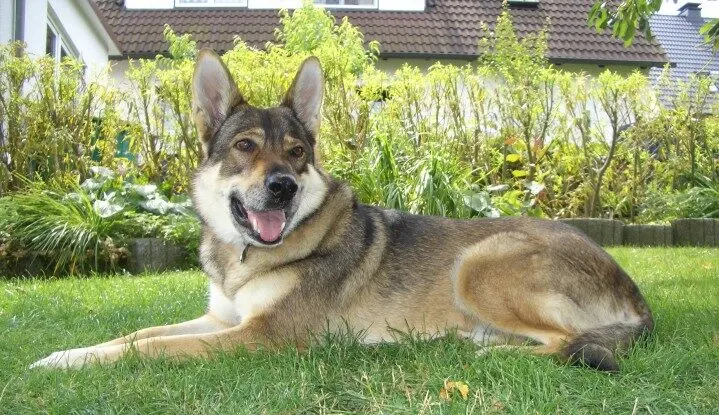 The answer sadly is no, Akitas are not hypoallergenic. Compared to other long-haired breeds, Akitas do not shed much as much.
The answer sadly is no, Akitas are not hypoallergenic. Compared to other long-haired breeds, Akitas do not shed much as much.
However, look out for their biannual shedding if you are prone to allergies. This biannual shedding may cause heightened allergy symptoms in those who suffer from dog allergies.
When Do Akitas Shed?
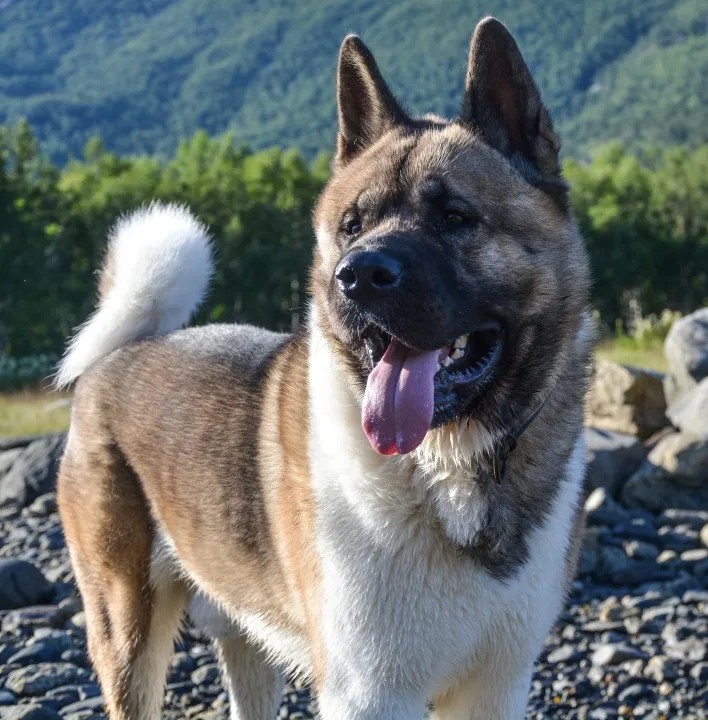 This leads to a very important question, when do Akitas have their biannual shedding showdown?
This leads to a very important question, when do Akitas have their biannual shedding showdown?
For some people, this may not be important, but if you or someone in your household suffer from dog allergies, this is a vital piece of information to know.
Generally speaking, Akitas have their shedding showdown every six months. This heavy shedding is usually seen in the winter and the summer.
Akita’s undercoats do this to prepare for the season they are headed into. The shedding showdown usually lasts 2 to 4 weeks, leaving Akitas with a lustrous new undercoat.
How Much Do Akitas Shed?
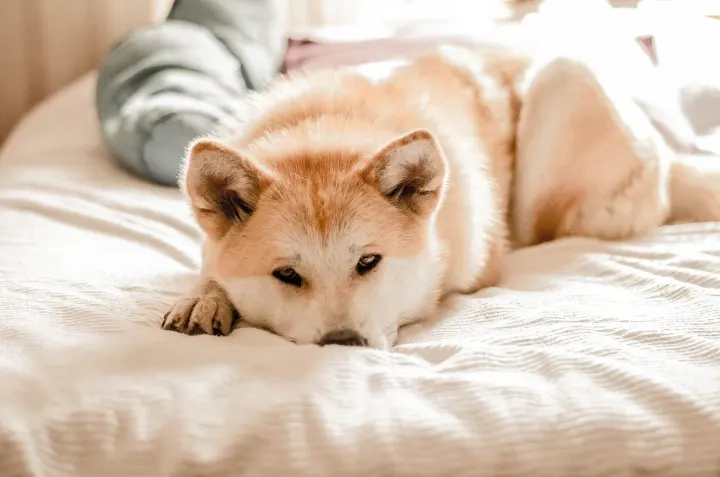 You could fill a 13-gallon kitchen garbage when Akitas go through their biannual shedding showdown. The rest of the year, they do not shed as much.
You could fill a 13-gallon kitchen garbage when Akitas go through their biannual shedding showdown. The rest of the year, they do not shed as much.
So, you would probably be looking at filling a container the size of a sandwich bag each week. All of this shedding is nothing a good vacuum couldn’t help with.
Can You Stop an Akita from Shedding?
If you have dog allergies and are dead set on getting an Akita, there are ways to minimalize shedding. You will never stop shedding with an Akita, but you can drastically reduce it.
 To do this takes work and persistence, but you can accomplish reduced amounts of shedding through:
To do this takes work and persistence, but you can accomplish reduced amounts of shedding through:
- Regular brushing. This will help your Akita to release their hair in a controlled manner instead of leaving it everywhere. Brushing also helps your Akita’s skin to moisturize so they’re less likely to have dander that can trigger allergies.
- Regular baths. Bathing your Akita regularly will help them as they shed. Using a quality shampoo will moisturize their skin, cutting down on allergy-causing dander. You will also get rid of other allergens, like dust and pollen.
- Blow drying. Don’t just stop at the bath for your Akita if it is not enough, give them a good old blow dry. You may be tempted to use a human blow dryer on your Akita, instead use a dog one. Get a dog blow dryer, that way it will be a safe temperature for your Akita.
- Shedding suit. Some people use shedding suits on their dogs to contain the shedding and dander to just the suit. Using a shedding suit will cover your Akita’s luxurious coat, but it will make it easier on your allergies.
- The optimum diet includes omega-3 fatty acids. Just like humans, when dogs eat a healthy diet, they reap rewards. Not only will it help them internally, but it will also help their skin and hair. If you are not sure what dog food to get your Akita you can consult your vet.
- Keep current on flea and tick preventatives. When Akitas get ticks or fleas, they will shed more. So, stay ahead of the game by giving your Akita flea and tick preventatives. Not only will this help your Akita’s coat and skin, it will also help them to avoid some nasty illnesses.
- Get a dog hair vacuum. This may sound silly, but you can actually vacuum your Akita. Vacuuming your Akita may drastically reduce the amount of Akita loose hair and dander that gets left on them. By eliminating loose hair and dander you will get less of it in the air you breathe.
What Can I Do to Avoid Allergies with Akitas?
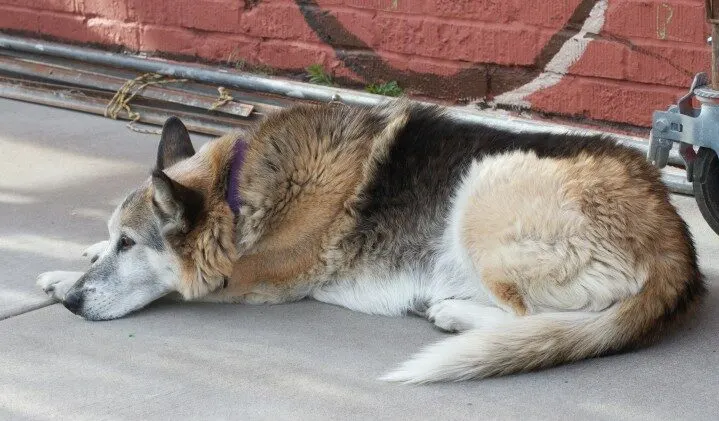
If you get to your wit’s end and cannot control your allergies with your Akita, don’t stop trying. Even after trying everything to make your Akita shed less, there are still more things you can do to help.
Here are a couple of things you can do for your environment that may help your allergies:
- Get a quality vacuum for your home. With all of the options out there, it can be overwhelming to pick one that will be best. Generally speaking though, you want a vacuum with a HEPA filter, these help a ton with dog allergies. Reading the reviews online will also help you pick one that will help you.
- Get an air purifier for your home. This will help take allergens out of the air you breathe in while in your home. Air purifiers come in different sizes, eliminating the need to worry about finding the right one to suit your needs.
- Use a HEPA filter in your HVAC system. This will decrease the allergens going through your home. So, when you are heating or cooling your home, you will not be sending out allergens.
- Replace the carpet with smooth surfaces. By giving your home fewer places for allergens to get trapped, you will be helping yourself out immensely. It may be expensive but can help the value of your home in the long run.
- Restrict your Akita to certain places in your home. By restricting where your Akita goes, you can have a “safe place” when your allergies start acting up. You can make the places they are allowed allergen friendly so your allergies won’t act up.
- Do not let your Akita on the couch. Couches are great at harboring allergens and then releasing them when you sit down. So, if you do not allow your Akita on the couch, you will cut down on a huge allergen sponge.
- Wash your hands after touching your Akita. It is a well-known fact that human hands can be disgusting. Our hands are great at holding things, including germs and allergens. So, washing your hands after touching your Akita can cut down on the allergens you carry around with you.
- Make your Akita an outdoor dog. Some people may not like the idea of having their Akita live outdoors, but they are perfectly suited for them. There are things you can do to make your dog more comfortable outside. You can even make an area to snuggle with them outdoors, full of toys and smooth surfaces and furniture. This will help so that your allergies don’t creep up on you.
- Talk with your doctor. Depending on the severity of your dog’s allergy, there are things that can help you live with your Akita. Discussing treatments with your doctor such as immunotherapy, prescriptions, and other options can be extremely helpful.
How Will I Know If I’m Allergic to Akitas?
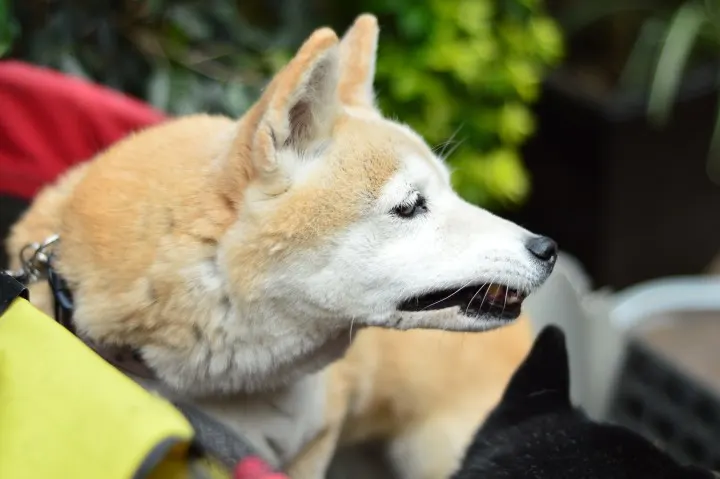 Over 30% of the world’s population has some sort of allergy. 15% to 30% of those people are allergic to dogs.
Over 30% of the world’s population has some sort of allergy. 15% to 30% of those people are allergic to dogs.
So, your chances of being allergic to your Akita are not great. However, there are symptoms you will experience that will let you know if you are allergic to Akitas.
Some of these symptoms include:
- Itchy, watery eyes
- Sneezing
- Runny nose
- Dry, itchy skin
- Hives and/or rashes
- Cough
- Itchy throat
You can also consult with your doctor to find out what you are allergic to. They may decide to have you complete an allergen test.
This may help you find out if you are allergic to Akitas. It may also rule out dog allergies.
Related Questions
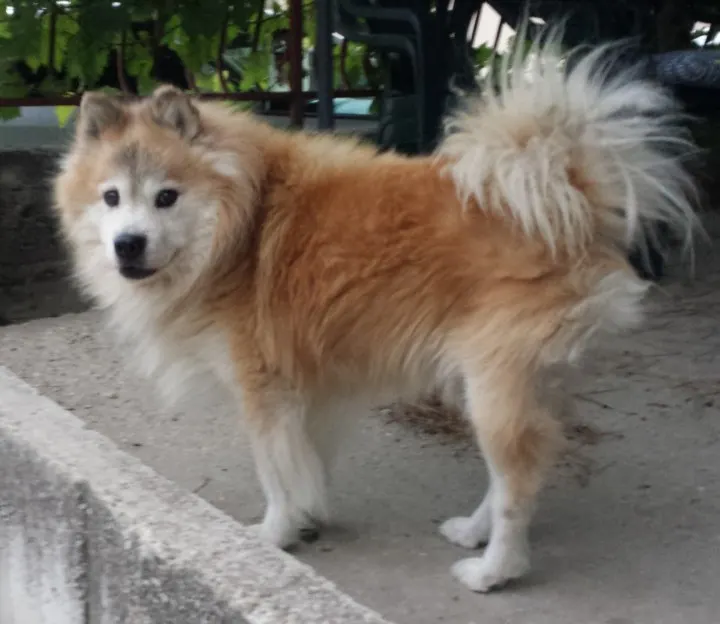 Are Akitas Easy to Train?
Are Akitas Easy to Train?
If you have ever trained a trainable dog breed, be prepared, the Akita is not going to be like that. They are super intelligent, which is a double-edged sword.
With their intelligence, comes their own will. Generally speaking, Akitas love their free will and are not concerned with pleasing people. So, sometimes training may not go exactly how you want.
However, you can definitely train an Akita to just about anything any other dog can, it just takes more patience.
The biggest thing to remember when training an Akita is to praise them and grow your relationship with them.
Are Akitas Banned in the United States?
While Akitas are not banned outright in the United States, there are some cities in the that have banned Akitas. Others require you to restrain them in certain ways. The reason behind this is because they have been known to be aggressive.
What is the Most Hypoallergenic Dog?
There is no such thing as a truly hypoallergenic dog since all dogs produce dander and proteins. However, there are some breeds that tend to be easier for people with dog allergies.
Most such breeds have hair instead of fur, which does not aggravate allergies as much as fur does. Some common dog breeds that don’t cause allergic reactions include Maltese, Poodles, Shih tzus, and Schnauzers.
Our team is composed of pet care professionals, veterinarians, and pet owners. To date, we’ve conducted thousands of hours of research to publish the most accurate pet information.
Most of the writers on our site are vets with 10+ years of clinical experience, ranging from small practice, to equine practice, academia, and surgery. Our goal is to help every pet owner get the information they seek about their dear companions.

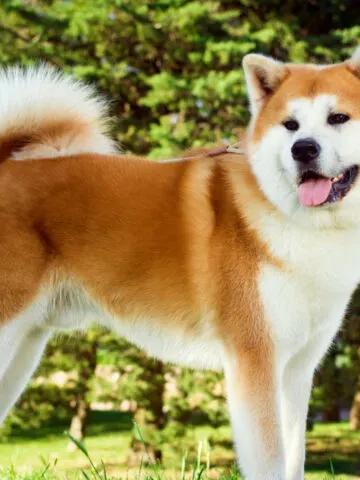

Leave a comment
You must be logged in to post a comment.